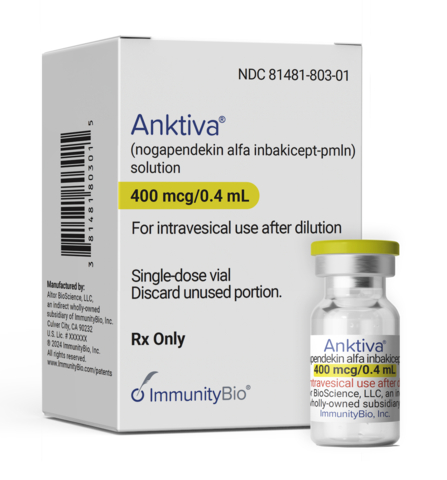Amgen’s Riabni, a CD20-directed cytolytic antibody and biosimilar to Rituxan, got approval from the FDA on Monday for adults with moderate to severe rheumatoid arthritis.
Rheumatoid arthritis (RA) is one of the most prominent systemic autoimmune diseases and affects about 1.5 million Americans. There are hereditary, environmental and lifestyle factors that are suggested to play a role in the triggering the disease.
RA mainly impacts the lining of the synovial joints that allow for movement. RA can cause joint damage and other problems throughout the body that can result in progressive disability and premature death. People with RA are usually diagnosed after 60 years of age. A frequent symptom of RA is stiff joints, particularly when getting up in the morning or after a period of sitting down.
RA involves immune cell infiltration in the joints because autoantibodies may form immune complexes in the joint which then attracts immune cells. These autoantibodies include rheumatoid factor and antibodies against post-translational modified proteins such as carbamylation (anti-CarP antibodies) and citrullination (anti-citrullinated protein antibodies [ACPA]).
A cure for RA has not been discovered, but there are several treatment options available such as medications with prescribed non-steroidal anti-inflammatory agents (NSAIDs), disease modifying anti-rheumatic drugs (DMARDs), corticosteroids and surgical approaches. The combination of drugs along with immunosuppressants or immunomodulators such as DMARDs have shown promising effects to slow down the aggressive progression of RA.
One of the prominent factors for the destruction of the synovial joints are the B cells, which induce the production of pro-inflammatory cytokines which cause leukocytes to infiltrate the synovial compartment of the joints. B-cell targeted therapy with the monoclonal antibody Rituxan (rituximab) is used to treat RA. Rituxan works by targeting CD20, which is a cell-surface marker on pre-B cells and mature B cells, and CD20 is not located on other cell types nor is CD20 free in circulation.
Riabni (rituximab-arrx), a CD20-directed cytolytic antibody and biosimilar to Rituxan, got approval from the US Food and Drug Administration (FDA) on Monday for adults with moderate to severe RA. This marks a new indication for Riabni, the fifth FDA-approved biosimilar by the biopharma Amgen.
XTALKS WEBINAR: Maintaining Safe Preservation and Traceability in Cell Culture Workflows
Live and On-Demand: Tuesday, July 19, 2022, at 1:30pm EDT (10:30am PDT)
Register for this free webinar to learn about the different ways in which cell culture workflows in preclinical research can be made safe and traceable. The featured speakers will first look at the items to consider for the sample storage part of the cell culture workflow to ensure peace of mind. Next, they will look at an exciting new software solution that furthers peace of mind by ensuring trackability and traceability through all stages of the workflow.
How Does Riabni Work?
Riabni is a biosimilar to Rituximab. Therefore, Riabni was proven to have no clinically meaningful differences in efficacy or safety from Rituxan based on FDA requirements such as comparative analytical, non-clinical and clinical data. Riabni is already being used for the treatment of four other conditions in adults, namely non-Hodgkin’s lymphoma (NHL), chronic lymphocytic leukemia (CLL), granulomatosis with polyangiitis (GPA) and microscopic polyangiitis (MPA).
The cell-surface marker CD20 is a membrane-embedded surface molecule that is involved with the proliferation, activation and differentiation of B cells. The CD20-directed cytolytic antibody Riabni binds to the CD20 antigen found on the surface of the pre-B and mature B-lymphocytes and malignant B cells. This obstructs the function of B cells such as antigen presentation, cytokine production, T-cell activation and so forth. It may result in B-cell lysis by one of the following mechanisms: complement dependent cytotoxicity (CDC), signaling-induced cell death known as apoptosis, antibody-dependent cell mediated cytotoxicity (ADCC) and antibody-dependent cellular phagocytosis (ADCP).
Evidence for the Efficacy of Riabni
The efficacy of Riabni was evaluated by a randomized, double-blind, comparative clinical trial. It involved 311 patients with moderate to severe RA. The patients were randomized and administered with Riabni, rituximab reference product (RP) approved in the EU (rituximab-EU) or rituximab RP approved in the US (rituximab-US). The primary objective of the clinical trial was to study and compare the safety, efficacy, immunogenicity and pharmacokinetics of Riabni compared to the rituximab RP.
The primary efficacy endpoint was the change in disease activity score 28 using C-reactive protein (DAS28-CRP) from baseline at week 24. The DAS28-CRP is a scoring system to describe the disease activity of RA and treatment response using laboratory and clinical data. The change in DAS28-CRP was within the predefined equivalence margin which demonstrates that Riabni and rituximab RP have equivalence in clinical efficacy. The pharmacokinetics, immunogenicity and safety of Riabni were similar to rituximab RP.
“The approval of Riabni is an important advancement for adults living with moderate to severe RA, a chronic inflammatory joint disease, who now have access to a proven and affordable treatment option. Our fully integrated portfolio of innovative and biosimilar medicines for inflammatory diseases reinforces our commitment to providing patients with high-quality and affordable treatment options that deliver substantial value to our healthcare system,” said Murdo Gordon, executive vice president of Global Commercial Operations at Amgen in the company’s press release.
Amgen’s Biosimilars
Amgen has a strong portfolio of 11 biosimilars. Currently Amgen has FDA approval for five of its biosimilars, namely Amjevita (adalimumab-atto), Avsola (infliximab-axxq), Kanjiti (trastuzumab-anns), Mvasi (bevacizumab-awwb) and Riabni. Three of their biosimilars are approved in the European Union (EU).
At this time, three of Amgen’s biosimilars are under clinical trials namely, ABP 654 (an investigational biosimilar to Stelara [ustekinumab]), ABP 938 (an investigational biosimilar to Eylea [aflibercept]) and ABP 959 (an investigational biosimilar to Soliris [eculizumab]).












Join or login to leave a comment
JOIN LOGIN